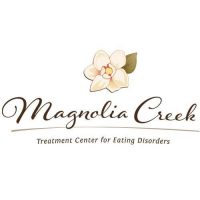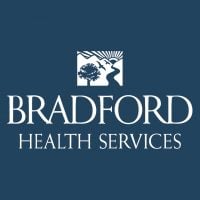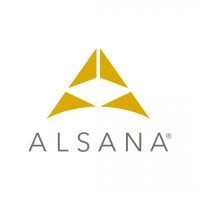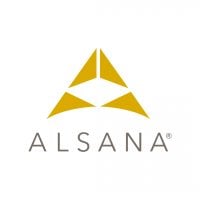Chilton Shelby Mental Health Center - Katherine Vickery Home
Drug Rehab Center in Clanton, Alabama
Chilton Shelby Mental Health Center - Katherine Vickery Home is a state-licensed behavioral health facility in Alabama offering personalized care plans to those with mental health, substance abuse, and addiction issues, with specialized treatment plans and evidence-based therapies.
About Chilton Shelby Mental Health Center - Katherine Vickery Home in Alabama
Chilton Shelby Mental Health Center–Katherine Vickery Home, located in Clanton, Alabama, is a state-licensed behavioral health facility providing comprehensive psychiatric care and addiction recovery programs for youth and adults. The center offers a range of specialized services tailored to meet the unique needs of various populations, including adolescents, young adults, seniors, pregnant and postpartum women, women with young children, intravenous drug users, persons with hearing impairments, and those with co-occurring disorders.
• Highly structured and supportive residential programs focusing on recovery
• Intensive individual, group, and family counseling sessions
• Robust, recovery-focused life skills training addressing coping, self-care, and relapse prevention
• Evidence-based complementary therapies, including experiential and recreational therapy
Accredited by CARF International and a member of the National Association of Addiction Treatment Providers and the Alabama Mental Health Division, Chilton Shelby Mental Health Center–Katherine Vickery Home has earned the Joint Commission Accreditation for Behavioral Health Care, recognizing its commitment to meeting the highest standards of patient care.
The facility treats a wide range of addictions and mental health issues, offering both short and long-term residential care, as well as outpatient and aftercare programming. Treatment methods include medical and mental health assessments, personalized care planning, case management, and evidence-based therapies delivered by an award-winning clinical team specializing in substance abuse and addiction treatment.
Chilton Shelby Mental Health Center–Katherine Vickery Home provides a complete continuum of care aligned with clients' evolving needs, including step-down support, academic and vocational training, employment and housing assistance, and referrals for additional services. The facility accepts most major insurance plans and offers financial assistance to those who qualify.
Genders
Ages
Modality
Additional
Accreditations
State License
Conditions and Issues Treated
Opioid addiction has become a significant health problem in the United States. In 2015, there were 91 opioid overdose-related deaths per day, with a substantial increase in mortality rate in 2014.
When opioid addiction has reached a point where a person’s life becomes unmanageable, treatment options are available to help them get sober. Treatment that includes medical care with medications and counseling can help a user transition into sobriety.
When someone in struggles with both addiction and mental or emotional illness, this is considered a dual diagnosis. Dual diagnosis treatment can include therapy for these issues to happen simultaneously, which will allow either of them to be treated effectively.
Sometimes people who have suffered from addiction disorder also suffer from co-occurring disorders such as depression, anxiety, bipolar disorder, etc., making them “dual diagnoses.” Dual diagnoses require specialized treatment programs where drug and alcohol addiction are addressed along with psychiatric illnesses. Some rehabilitation facilities provide patients suffering from cooccurrences a program with highly integrated services and a clean environment with few distractions to help them succeed.
Levels of Care Offered
This center offers a variety of custom treatment tailored to individual recovery. Currently available are Aftercare Support, Drug Rehab, Dual-Diagnosis, Inpatient, Outpatient, Residential, with additional therapies available as listed below.
Inpatient treatment for alcoholism or drug addiction is an option that provides the addict with a supportive environment in which they can stop using. After detox, an inpatient treatment center provides a structured environment for the addict to recover from their addiction and begin taking steps toward a lifetime of sobriety.
This type of treatment is appropriate for addicts that are most in need of intensive care and supervision. This includes those who were unable to quit on their own, those who need more structure than they can get in outpatient treatment, and those whose addiction has led them into legal trouble or severe health problems.
Outpatient treatment is often used for drug addicts in drug rehab. Outpatient treatment consists of counseling and therapy sessions. This form of treatment is also called ‘day-treatment’. The outpatient treatment process begins with the addict’s initial detox period, lasting about ten days.
Outpatient treatment is used for those who are at moderate risk for ‘slipping back’ into the addiction, for those who:
- Are not currently experiencing any side effects from withdrawal and can handle social pressure
- Can handle stressors that might trigger relapse
- Have a stable living environment or have moved out of their previous environment, which was not conducive to being sober
- Have a support system that allows them to go to a facility a few times a week while still keeping their current responsibilities
- Have no legal obligations, being either on parole or probation, that require them to seek treatment at a mandatory facility
- Are not currently experiencing any side effects from withdrawal and can handle social pressure
- Have a stable living environment or have moved out of their previous environment, which was not conducive to being sober
Residential treatment programs are those that offer housing and meals in addition to substance abuse treatment. Rehab facilities that offer residential treatment allow patients to focus solely on recovery, in an environment totally separate from their lives. Some rehab centers specialize in short-term residential treatment (a few days to a week or two), while others solely provide treatment on a long-term basis (several weeks to months). Some offer both, and tailor treatment to the patient’s individual requirements.
Completing a drug or alcohol rehab program is only the first step. Then comes aftercare support. These services include sober living accommodations, career counseling, and AA/NA programs for those struggling with sobriety or who want help maintaining it after initial rehab at an addiction facility.
They can last up to a year or more depending on what’s needed most urgently after the earlier stages are completed.
Therapies & Programs
Because no single treatment is effective for all addicts, the goal of treatment and therapy should be to figure out what works best for each individual. Tolerance and withdrawal levels differ from person to person, affecting the treatment intensity required. Addiction treatment should aim to help addicts develop healthy coping mechanisms for dealing with their addiction and its underlying causes.
Couples therapy works with clients and significant others in a professional capacity to improve relationship dynamics. This can be helpful for addicts who are trying to marry the idea of recovery into their work, family, social lives – any aspect that has to do with relationships. Through counseling sessions, addicts will have an opportunity to talk about their addiction with professional partners.
Family therapy is beneficial for people who are in addiction treatment services because it offers addicts the opportunity to work with their family members to better understand what led them to make choices that contributed to their addiction.
This type of therapy helps family members reach a deeper understanding of how they can best support their loved one during recovery. It also helps the addict better understand their own motivations and triggers that led them to turn to substance abuse.
Family therapy can help addicts in the following ways:
- Assists family members in processing difficult feelings so they don’t blame or resent recovering addicts
- Assists family members in understanding how addiction has impacted the addict and everyone who is involved with them
- Allows the addict to take responsibility for their actions, while encouraging improved communication skills
- Helps family members understand how to best support an individual in recovery so addicts don’t relapse again.
Group therapy can help build a stronger support system and give addicts in Clanton, AL insight into their addiction that they gain through shared conversations. Group therapy occurs in a controlled group environment, exclusive of one on one meetings. This makes it safer for patients to feel comfortable sharing the struggles they’re going through and gaining perspective.
Trauma therapy is beneficial for people who are recovering from drug addiction because it helps them heal from past traumas that may have caused them to turn to harmful substances or led them to experience negative emotions that contributed to their destructive behaviors.
This type of treatment works by processing difficult experiences so individuals can learn how to process these events without having to turn to substances for coping.
Trauma therapy can help addicts in the following ways:
- Helps individuals understand their experiences and emotional responses to difficult events, including why they turned to drugs or alcohol
- Provides them with comfort and support while working through difficult emotions related to these traumatic experiences
- Offers an opportunity for addicts to have a voice and be heard, which can improve their self-esteem
- Can help them develop coping skills so they can better respond to triggers instead of turning to substance abuse.
Dialectical Behavior Therapy (DBT) is a cognitive-behavioral therapy that helps patients understand the relationship between their thoughts, feelings, and behaviors. It is beneficial for those whose addictions and behaviors stem from severe mental health issues. The term “Dialectic” means the integration of opposites. In substance abuse, DBT refers to accepting the patient’s addiction and working to change their thoughts and behavior. It improves life skills such as controlling intense emotions without reacting impulsively, resolving interpersonal conflicts effectively, and promoting awareness about self and others.
Cognitive-behavioral therapy is a technique that is used to help people with addiction. Specifically, it is a way of identifying thoughts and behaviors that cause the addiction. It is typically used in an individual counseling session.
The content explains cognitive behavioral therapy and how it works to address some behaviors that may be leading to unintended consequences in their life, as well as its benefits for those seeking sobriety.
It works by helping people to talk through their issues and addressing the thoughts that cause said behaviors. It is an excellent way of learning about oneself and one’s perception of the world.
Life Skills Services assist addicts in their recovery by teaching them healthy coping mechanisms that will aid them in becoming sober, focussing on helping people enter into, and maintaining long-term sobriety. Drug Treatment Centers provide Life Skills Services at varying levels of intensity, specific to the needs and requirements of each patient.
The benefits of Life Skills Services offered at Chilton Shelby Mental Health Center - Katherine Vickery Home:
- Restores hope and empowerment — Helps addicts believe that recovery is possible and instills a new confidence in their ability to achieve a positive, drug-free future
- Enhances family involvement — Encourages families to get involved in the recovery process and supports their understanding and encouragement of healthy behavior.
- Increases patient’s compliance — Helps patients take responsibility for and ownership of their recovery and encourages continued progress
- Reduces relapse rates — Encourages long-term abstinence and emphasizes the importance of establishing sober support systems.
Patient Experience
Experiential Therapy at Chilton Shelby Mental Health Center - Katherine Vickery Home
Experiential therapy uses engaging activities to help patients access deeper, often hidden emotions. For example, the patient could role-play a problematic situation or engage in activities like drawing, painting, poetry writing, music composition, exercising, or journaling to help process intense feelings.
Experiential therapy is a type of therapeutic approach that focuses on having patients work through problems, issues, or emotions by engaging directly in some real experience. Experiential therapy occurs face-to-face with a therapist who helps these people to explore their feelings first hand.
It is based on the belief that to truly understand and gain insight into oneself and behavior; it is necessary and helpful to have real experiences with the issues involved. Some therapists have developed the experiential therapy approach as a way of treating addictive behaviors or dealing with impulses related to addiction. It comes from an existential school of psychotherapy called ‘experiential existential.’
Payment Options Accepted
For specific insurance or payment methods please contact us.
Is your insurance accepted?
Ask an expert, call (888) 674-0062
Chilton Shelby Mental Health Center Associated Centers
Discover treatment facilities under the same provider.
- Chilton - Shelby Mental Health Center - Pelham in Pelham, AL
- Chilton Shelby Mental Health Center - Mitchell Center in Calera, AL
- Chilton - Shelby Mental Health Center - Hamilton Center in Calera, AL
- Chilton Shelby Mental Health Center - Clanton in Clanton, AL
- Chilton Shelby Mental Health Center - Carrie Gray Home in Clanton, AL
Learn More About Chilton Shelby Mental Health Center Centers
Additional Details
Specifics, location, and helpful extra information.
Clanton, Alabama 35045 Phone Number(205) 280-0825 Meta DetailsUpdated April 15, 2024
Staff Verified
Chilton Shelby Mental Health Center - Katherine Vickery Home Patient Reviews
There are no reviews yet. Be the first one to write one.
Clanton, Alabama Addiction Information
Opioids, such as heroin, fentanyl, and prescription opioids are related to more than half of all drug-related overdoses in Alabama. Alcohol is the most frequently used substance in Alabama; 85,000 Alabamians use cocaine every single year. In Alabama, there are four times as many vehicle crashes involving alcohol as there are normal vehicle crashes.
The drug addiction problem in Clanton, Alabama is relatively bad. There were about 5,000 drug overdose deaths in Clanton in 2016. This number is especially troubling when you consider that Clanton only has a population of around 8,000 people. Heroin was the drug most often involved in overdose deaths. The options for drug treatment in Clanton depend on the person's needs. Some common treatments include detox, therapy, and medication.
Treatment in Nearby Cities
- Brewton, AL ( mi.)
- Monroeville, AL (100.7 mi.)
- Huntsville, AL (129.6 mi.)
- Scottsboro, AL (130.1 mi.)
- Woodville, AL (124.2 mi.)
Centers near Chilton Shelby Mental Health Center - Katherine Vickery Home
The facility name, logo and brand are the property and registered trademarks of Chilton Shelby Mental Health Center - Katherine Vickery Home, and are being used for identification and informational purposes only. Use of these names, logos and brands shall not imply endorsement. RehabNow.org is not affiliated with or sponsored by Chilton Shelby Mental Health Center - Katherine Vickery Home.








